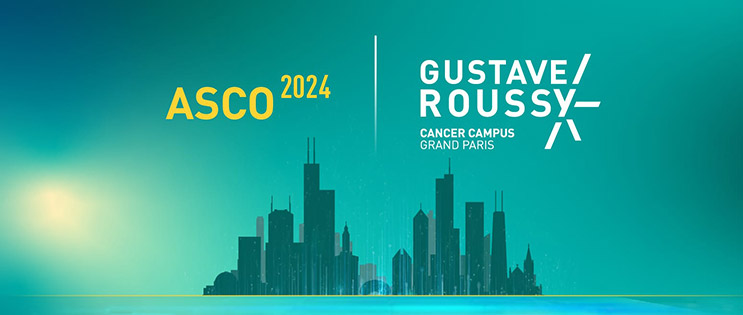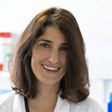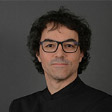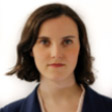Gustave Roussy at the ASCO 2024 conference: a particularly rich edition
From 31 May to 4 June, ASCO, the world’s largest cancer conference, is held in Chicago, USA. This year, Gustave Roussy’s physician-researchers participated in more than 130 abstracts selected by the conference’s scientific committee, testifying to the quality of the research conducted at the Institute, and its impact on a global scale.

Every year, nearly 40,000 oncologists from around the world converge in Chicago, where the American Society for Clinical Oncology (ASCO) holds its annual conference. For this edition, more than 5,000 abstracts will be discussed during five days of meetings and exchanges, revealing the results of the most innovative clinical studies recently conducted.
These presentations will be divided into a plenary session, 24 oral presentation sessions, 16 oral clinical science symposia and 24 rapid oral sessions. Gustave Roussy enjoys significant visibility during this 2024 edition. Of the 135 presentations in which the Institute’s physician-researchers participated in, there are:
- 23 oral session presentations and 6 clinical science symposia, of which a total of 9 are presented by Institute researchers.
- 9 rapid oral presentations, including 2 made by Institute researchers.
- 3 educational sessions lead by the Institute's physician-researchers.
- 1 case-based panel.
- 2 abstracts put into perspective (discussant) by experts from Gustave Roussy. One on sarcomas by Dr. Nathalie Gaspar, the other on new drugs by Dr. Barbara Pistilli.
- 93 posters, including 28 presented by Institute researchers.
Nine promising studies presented orally by Gustave Roussy
Among these abstracts, seven oral presentations and two clinical science symposia will be presented by an expert from Gustave Roussy as the first author.
Prof. David Planchard – Encouraging results for a conjugated antibody in lung cancer: This phase II study coordinated by Gustave Roussy is part of the medical-scientific programme UNLOCK, which aims to better understand the mechanisms of action and resistance to new innovative molecules, such as conjugated antibodies. These are complex molecules that target tumour cells to deliver chemotherapy directly into the cell while sparing healthy cells as much as possible. The study shows efficacy of the Dato-DXd conjugated antibody, targeting the TROP2 protein, overexpressed in 80% of non-small cell lung cancers. This efficacy is reflected in terms of tumour response and recurrence-free survival, which is particularly important in patients with metastatic non-squamous non-small cell lung cancer after failure of standard treatments. The ongoing biomarker study using sequential tumour biopsies from this study suggests that it is possible to determine which patients may benefit from this lung cancer anti-tumour therapy.
Abstract No. 8501 presented on Friday 31 May at 14:57 in an oral session.
► Read the press release
Prof. Caroline Robert – Value of a sequential approach against advanced melanomas: In patients with advanced melanoma with the V600E/K mutation, the value of a sequential therapeutic approach, with a first three-month induction treatment with BRAF and MEK inhibitors, followed by immunotherapy with ipilimumab and nivolumab, was uncertain. The results of this phase II trial evaluate the benefits of this approach, particularly in patients with high LDH or liver metastases.
Abstract No. LBA9503 presented on Friday 31 May at 15:45 in an oral session.
Prof. Karim Fizazi – Nuclear medicine for prostate cancer: For patients with prostate cancer resistant to traditional and second-generation hormonal therapies, PSMA-lutetium appears to be an increasingly important option: the phase III PSMAfore trial recently showed that this is also the case in patients who have not received taxane chemotherapy. This oral presentation shows the benefit of this treatment in terms of pain prevention and quality of life.
Abstract No. 5003 presented on Saturday 1 June at 16:00 in an oral session.
Prof. Fabrice André - Combinations with conjugated antibody in breast cancer: Trastuzumab-deruxtecan (T-DXd) is an approved treatment for patients with HER2-positive metastatic breast cancer who have previously received anti-HER2 therapy. The DESTINY-Breast07 study is a phase Ib/II trial that explores the safety, tolerability, and anti-tumour activity of trastuzumab-deruxtecan, alone or in combination with other anticancer drugs. The partial results presented by Prof. Fabrice André relate to the combination of trastuzumab-deruxtecan with pertuzumab as first-line treatment in HER2-positive metastatic breast cancer.
Abstract No. 1009 presented on Saturday 1 June at 17:24 in an oral session.
Prof. Laurence Albiges – Interesting results of immunotherapy for poor prognosis kidney cancers: When administered indiscriminately to patients with clear cell renal cancer, post-operative atezolizumab immunotherapy does not provide any benefit in terms of disease-free survival. However, the exploratory study IMmotion010 aims to identify a subgroup of patients in whom this treatment may be of interest, by studying certain biomarkers, including Kidney Injury Molecule-1 (KIM-1), which is synonymous with poor prognosis.
Abstract No. 4506 presented on Monday 3 June at 09:24 in an oral session.
Dr. Antonio Di Meglio - Early detection of depressive symptoms in breast cancer: Depressive symptoms are responsible for a deterioration in quality of life and early mortality in women cured of breast cancer. The study presented by Dr. Di Meglio established five depression symptom trajectory groups among the 9,087 women with early-stage breast cancer in the CANTO cohort. Older, overweight or obese patients with anxiety, cognitive or self-image problems are more likely to have worsening depressive symptoms. The study focuses on early detection and active monitoring of patients’ psychological vulnerabilities.
Abstract No. 12009 presented on Monday 3 June at 16:42 in the clinical science symposium.
► Read the press release
Dr. Roger Sun – Virtual and radiomic biopsy: Radiomics is an imaging analysis technique to which Gustave Roussy is strongly committed, making it possible, by combining radiology, biology and artificial intelligence, to develop new non-invasive biomarkers. The study presented by Dr. Sun focuses on the use of radiomics to evaluate tumour infiltration of CD8 T cells in patients with non-small cell lung cancer. This includes predicting the efficacy of treatment with durvalumab. This study is part of a strategy to personalise new immunotherapies, and could pave the way for treatment combinations with, for example, radiotherapy.
Abstract No. 2511 presented on Tuesday 4 June at 08:36 in the clinical science symposium.
► Read the press release
Dr. Caroline Even – Therapeutic vaccine and immunotherapy: The OpcemISA study is a randomised, double-blind phase II trial that evaluated the efficacy of ISA101b when combined with cemiplimab, an anti-PD1 monoclonal antibody, to fight HPV16-positive oropharyngeal cancer.
Abstract No. 6003 presented on Tuesday 4 June at 10:45 in an oral session.
Dr. Maria Alice Franzoi - Remote monitoring and cancer: For cancer patients, the benefits of remote monitoring have already been established and demonstrated on quality of life, management of toxicities and reduction in hospitalisations. However, no studies had been conducted on the influence of socio-economic determinants (education, financial resources, understanding of the disease and care, digital culture, etc.) on patients’ adherence to a remote monitoring protocol. The research presented by Dr. Maria Alice Franzoi shows that the presence of an unfavourable socio-economic factor in a patient aggravates the symptoms of the disease, as well as adherence to a remote monitoring programme. Identifying these barriers to joining a remote monitoring pathway is essential to improve patient equal access to remote monitoring and reduce disparities in oncology.
Abstract No. 1506 presented on Tuesday 4 June at 11:45 in an oral session.
► Read the press release
Other work in which Gustave Roussy is particularly involved
In scientific publications, the last author also plays a pivotal role in research work. In addition to the nine first-author studies presented by an Institute physician-researcher, the experts of Gustave Roussy have signed, as the last author, five other abstracts presented orally at this edition of the ASCO.
Dr. Christophe Willekens - Treatment de-escalation in acute myeloid leukemia: This study of elderly patients with acute myeloid leukemia compares a reduced treatment duration of seven days with venetoclax in combination with azacitidine, compared to a standard regimen of venetoclax for 28 to 21 days. The results show that there is no difference in treatment response or survival, but that treatment is better tolerated with a significant reduction in early mortality.
Abstract No. 6507 presented on Friday 31 May at 16:57.
Prof. Fabrice Barlesi – Targeting a mutation in lung cancer present in other cancers: The phase III KRYSTAL-12 study compares adagrasib versus docetaxel in patients previously treated for advanced or metastatic non-small cell lung cancer with the KRAS-G12C mutation.
Abstract no. LBA8509 presented on Saturday 1 June at 13:27.
Dr. Maximiliano Gelli – The value of liver transplantation combined with chemotherapy: In colorectal cancer patients with liver metastases, curative management is based on a combination of surgery and perioperative chemotherapy. When liver metastases are inoperable, treatment is based on proprietary chemotherapy, but these patients have a poor prognosis. The TransMet study is evaluating the benefit of liver transplantation combined with chemotherapy compared to chemotherapy alone in these patients.
Abstract no. 3500 presented on Sunday 2 June at 08:00.
Dr. Patricia Pautier – Immunotherapy for relapsed ovarian cancer: Platinum-resistant relapsed ovarian cancer is a particularly challenging clinical situation in which therapeutic alternatives are weak. This trial is the first reported with immunotherapy, an antiPD-L1 in combination with bevacizumab and chemotherapy. This is a randomised, double-blind phase III versus standard arm stratified by PD-L1 status, chemotherapy used, prior bevacizumab treatment, and number of prior lines of therapy. 574 patients were randomised in Europe. The results of the primary objectives presented are progression-free survival and overall survival.
Abstract no. LBA5501 presented on Sunday 2 June at 08:12.
Dr. Birgit Geoerger – An effective targeted therapy in adults evaluated in pediatrics: Erdafitinib is a tyrosine kinase inhibitor already approved in the US to treat advanced bladder cancer. Initial results from the Ragnar study showed that it was also effective in patients with a FGFR gene mutation or fusion across all solid tumour types. At the same time, a cohort dedicated to paediatric cancers has opened in Gustave Roussy, within the DITEP and the Department of Paediatric and Adolescent Oncology. The results of this paediatric cohort, which established the dose of erdafitinib in children and its efficacy, are presented at ASCO.
Abstract no. 10002 presented on Sunday 2 June at 08:24.
The award-winning Gustave Roussy physician-researchers
 Awarded by Conquer Cancer, the ASCO Foundation, the International Women Who Conquer Cancer Mentorship Award each year rewards renowned medical researchers for their commitment to reducing disparities between women and men in oncology. Dr Ines Vaz Luis, medical oncologist at Gustave Roussy, receives the 2024 edition of this prestigious award.
Awarded by Conquer Cancer, the ASCO Foundation, the International Women Who Conquer Cancer Mentorship Award each year rewards renowned medical researchers for their commitment to reducing disparities between women and men in oncology. Dr Ines Vaz Luis, medical oncologist at Gustave Roussy, receives the 2024 edition of this prestigious award.
 The Giants of Cancer Care award, presented by specialist publisher Onclive, recognises internationally renowned specialists for their contribution to global cancer research, whose work has laid the foundations for future projects. A panel of 115 reputable oncologists identifies several winners each year, divided by tumour type and speciality. This year, Prof. Fabrice André, Director of Research at Gustave Roussy, receives the Giants of Cancer Care in the Translational Science category. It has been handed to him on 30 May in Chicago, on the eve of the ASCO opening.
The Giants of Cancer Care award, presented by specialist publisher Onclive, recognises internationally renowned specialists for their contribution to global cancer research, whose work has laid the foundations for future projects. A panel of 115 reputable oncologists identifies several winners each year, divided by tumour type and speciality. This year, Prof. Fabrice André, Director of Research at Gustave Roussy, receives the Giants of Cancer Care in the Translational Science category. It has been handed to him on 30 May in Chicago, on the eve of the ASCO opening.
Finally, this year, three Merit Awards were awarded to research doctors at Gustave Roussy. These awards are presented by Conquer Cancer to young experts for their high-quality work presented at the conference, as well as for their scientific merit.
 Federika Gattazzo: PhD student at Prof. Laurence Zitvogel's laboratory, for the study she presents on the impact of microbiota T cells on the response to immunotherapy.
Federika Gattazzo: PhD student at Prof. Laurence Zitvogel's laboratory, for the study she presents on the impact of microbiota T cells on the response to immunotherapy.
 Dr Pietro Lapidary: oncologist and researcher on the breast pathology committee in senology, for his study on musculoskeletal pain related to aromatase inhibitors in early breast cancers.
Dr Pietro Lapidary: oncologist and researcher on the breast pathology committee in senology, for his study on musculoskeletal pain related to aromatase inhibitors in early breast cancers.
 Dr Martina Pagliuca: oncologist and researcher on the team Molecular Predictors and New Targets in Oncology, for her study on the burden of behavioural symptoms after breast cancer.
Dr Martina Pagliuca: oncologist and researcher on the team Molecular Predictors and New Targets in Oncology, for her study on the burden of behavioural symptoms after breast cancer.
